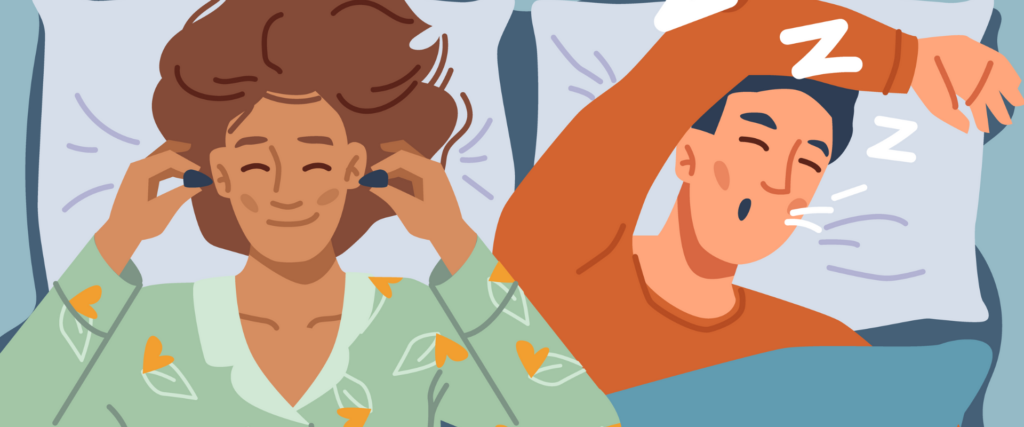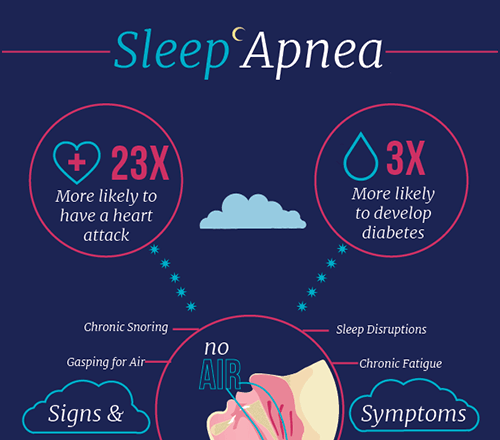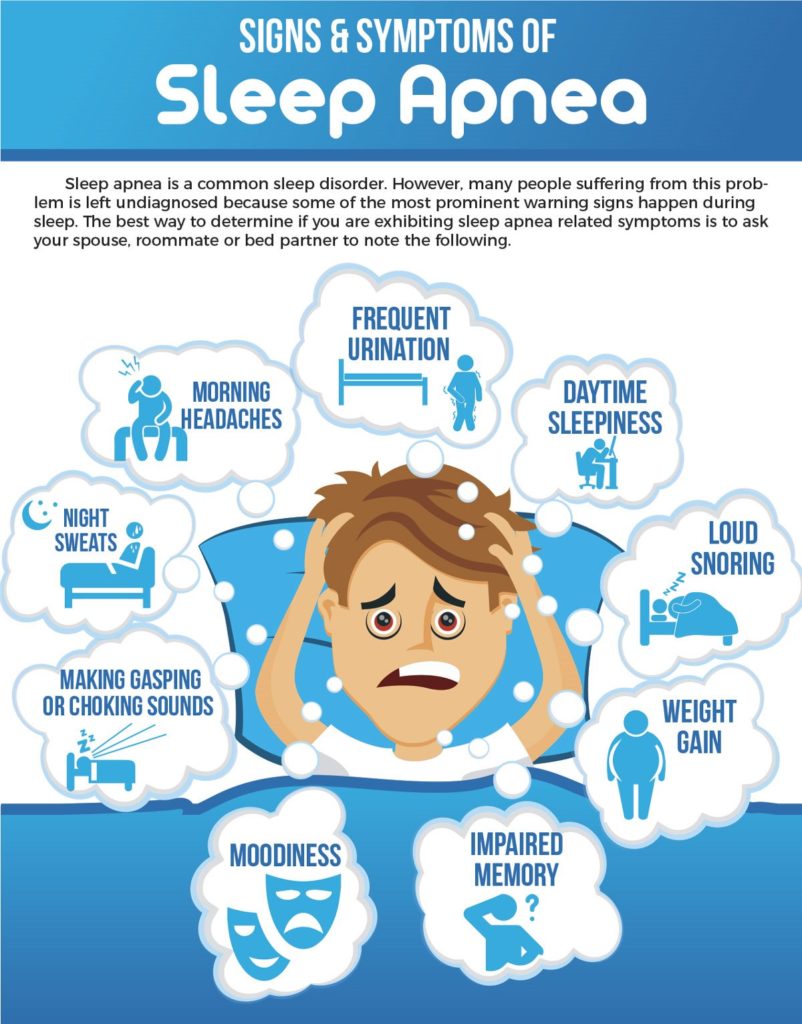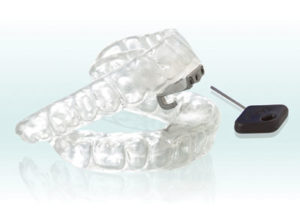
Sleep Apnea impacts your health in more ways that just snoring! According to estimates, 50 million to 70 million people in the U.S. have ongoing sleep disorders and sleep apnea is extremely common with over 18 million adults experiencing a form of sleep apnea every night according to the National Sleep Foundation. Sleep apnea can be caused from multiple factors, such as obesity, large tonsils, a small airway, smoking, alcohol use, and more. Whatever the reason of sleep apnea, it causes pauses of breathing during a sleep cycle. This means that when you have sleep apnea, you could be waking up multiple times throughout the night and losing sleep.
What happens to your body when you sleep (or try to sleep)?
As you rest, your body becomes less tense because your muscles relax. Sleep is the time when your body heals and repairs itself to prepare you for the following day. However, Sleep Apnea impacts your health and can cause sleep to be problematic, because it limits their ability to rest and restore their bodies properly.
Primary symptoms of the disorder are irregular breathing, excessive snoring, and occasional breaks or pauses in breathing, which occur due to the complete relaxation of the throat muscles or airway blockage.
Other symptoms may include:
- constant fatigue
- depression
- chronic headaches
- high blood pressure
- obesity
- complications during pregnancy
If these symptoms are left dismissed, and sleep apnea persists, heart failure, heart attack, high blood pressure, stroke, death, and other serious health issues can result.
It may even be indicative of other serious underlying health issues such as:
- diabetes
- neurological illness
- mental illness
- heart disease
Related Article: Signs of Sleep Apnea: The Bedtime Battle
Want to know more about SLEEP?? Here are 100 Sleep Statistics, including facts and data about sleep in 2023, according to SleepFoundation.org.
Big Three: Types of Sleep Apnea
While usually following a similar pattern, identifying and classifying your specific type of sleep apnea is indeed a crucial part of resolving the disorder, as sleep apnea impacts your health, can have multiple causes, and can manifest itself in several different variations.
Obstructive Sleep Apnea:
Obstructive sleep (or OSA) apnea is without doubt, the most common form of sleep apnea, as it affects approximately 3.6 million Americans today. However, despite such staggering statistics, it is believed that only 10% of those suffering from OSA recognize the symptoms and actively seek treatment for the condition, thereby leaving most suffers untreated.
Some of the signs and symptoms of OSA are:
- Noticeably loud snoring
- Headaches
- Dry mouth
- Excessive drowsiness or sleepiness throughout the day
- Repeated shortness of breath (abrupt awakenings) while asleep
Generally, the root cause of OSA, is attributed to relaxation of muscles while asleep, during which the tongue may cause a partial blockage of a person’s airway.
Central Sleep Apnea:
As opposed to being something of a mechanical problem like OSA, central sleep apnea (or CSA) is more of a muscle signal or miscommunication problem that originates within the brainstem. Although considerably less prevalent than OSA, CSA should not be taken lightly as it may likely be indicative of serious underlying health issues such as heart failure or Parkinson’s Disease.
Common symptoms of CSA may include:
- Chronic fatigue
- Poor concentration
- Depression
- Snoring
- Shortness of breath
- Repeated abrupt awaking
With the central nervous system compromised, both voluntary and involuntary muscle movement becomes increasingly restricted, therefore causing interruptions in involuntary actions such as breathing. This can be particularly problematic during sleep, as the suffer may repeatedly experience abrupt awakenings while attempting to rest, as a natural reaction to the sudden lack of oxygen.
Complex Sleep Apnea Syndrome:
The final and as its name implies, most severe and advanced form of sleep apnea is complex or mixed sleep apnea syndrome. Complex sleep apnea (or perhaps more appropriately referred to as Mixed Sleep Apnea) is a combination for both OSA and CSA, and typically presents symptoms of both. Often in the cases of complex sleep apnea, a sufferer should seek immediate treatment as the standard of living with this condition may deteriorate rapidly. (e.g. going for too long without the adequate amount of sleep).
A Review of Sleep Apnea Symptoms
When you lose sleep due to sleep apnea, you can experience a multitude of symptoms. We often associate loud snoring with sleep apnea, as it is sometimes a sign of breathing issues. If you or a loved one experiences any of these symptoms, it may be time to talk with your doctor and your dentist about sleep apnea. Are you beginning to understand why Sleep Apnea impacts your health?
Information from the Mayo Clinic and Types of Sleep Apnea.
Common Sleep Apnea Symptoms:
- Loud snoring
- Excessive sleepiness and fatigue throughout the day
- Trouble concentrating
- Gasping for air during sleep
- Dry mouth
- Headaches in the morning after waking up
- Depression
- Irritability
If these sleep apnea symptoms are left untreated for a long period of time, they could lead to more serious health complications, such as heart disease, high blood pressure, stroke, and more.
More on Sleep Apnea Symptoms from the National Heart, Lung, and Blood Institute.
Are Children Affected by Sleep Apnea?
The short answer is: YES!! According to sleepforkids.org, 13 percent of children from ages 6 to 11 are overweight. While these age groups should be getting between 10-11 hours of sleep per night, obesity can cause these numbers to go down due to sleep apnea. So, what exactly is sleep apnea and how is it affecting our children? And for children, can sleep apnea impacts your health too?
Can children develop sleep apnea? Read more HERE.
What Causes Sleep Apnea?
The overall success in treating sleep apnea remains relatively high; however, the rate of success depends heavily on finding the exact cause of the disorder and selecting the best method of treatment.
Various causes can contribute to sleep apnea. However, one of the most common causes of this disorder is obesity; as fat deposits that accumulate around the neck place pressure on the throat, limiting the body’s ability to breathe sufficiently. Large tonsils are also a cause of sleep apnea as they tend to obstruct the passage of air into and out of the body.
Other sleep apnea causes include premature births and genetic syndromes that impact facial structures such as congenital central hypoventilation syndrome. Heart and kidney failure, PCOS, hypothyroidism, and conditions that interfere with the brain’s signals can also contribute to a person’s development of sleep apnea.
Related Article: How Would You Know if You Suffer from Sleep Apnea?
Treatments for Sleep Apnea
If you are experiencing the common symptoms of sleep apnea, your dentist or doctor may ask you to participate in a sleep study to monitor your breathing throughout the night. They may ask you about your medical history or perform a physical exam to reach a diagnosis. Remember, more than your sleep can be affected by sleep apnea.
Once a diagnosis is confirmed, there are multiple treatment options for sleep apnea, including:
- Weight loss
- Surgery
- Mouthpieces
- Breathing devices
- Mouth therapy
Research shows that oral appliance therapy, or a mouth guard, is an effective treatment option for sleep apnea and snoring. At GPS Dental, we know Sleep Apnea impacts your health and we take sleep apnea very seriously. Our FDA-approved mouthguards can help open your airway and support your jaw when sleeping. Talk to Dr. Skrobanek to see what treatment is right for you and begin your path to a better night’s sleep!
Home Remedies for Sleep Apnea from Healthline.
Dr. Gary P. Skrobanek’s experienced and friendly team at GPS Dental offers affordable dental care for all ages in San Antonio, TX area. Our Brooks City Base dentist office is conveniently located and offers early morning appointment times Monday through Friday to meet your needs. At GPS Dental, we promote dental health awareness to our patients and provide most dental services, from family and general dentistry to dental implants, sleep apnea, TMJ / TMD Treatment, cosmetic dentistry and much more. We accept most dental insurance plans and offer affordable financial solutions for any budget. Call us at 210-633-3477 to make an appointment.








 Have you ever had a night like that? Your dream turns into an unsettling adventure on a freight train. Only to be jolted awake and realize that it’s your husband snoring and the sound of the freight train is their snoring? Maybe he needs a mouthguard!
Have you ever had a night like that? Your dream turns into an unsettling adventure on a freight train. Only to be jolted awake and realize that it’s your husband snoring and the sound of the freight train is their snoring? Maybe he needs a mouthguard!

